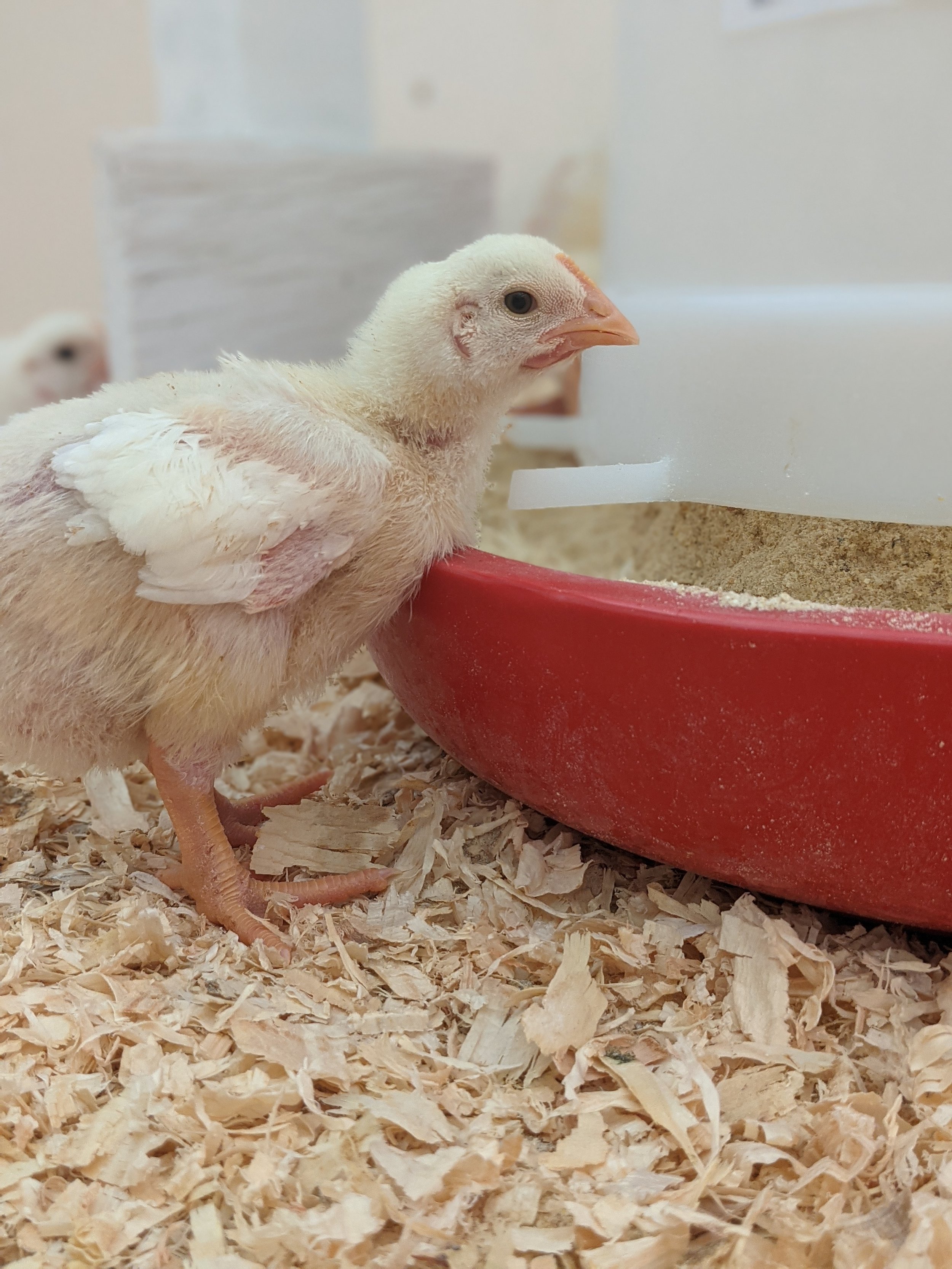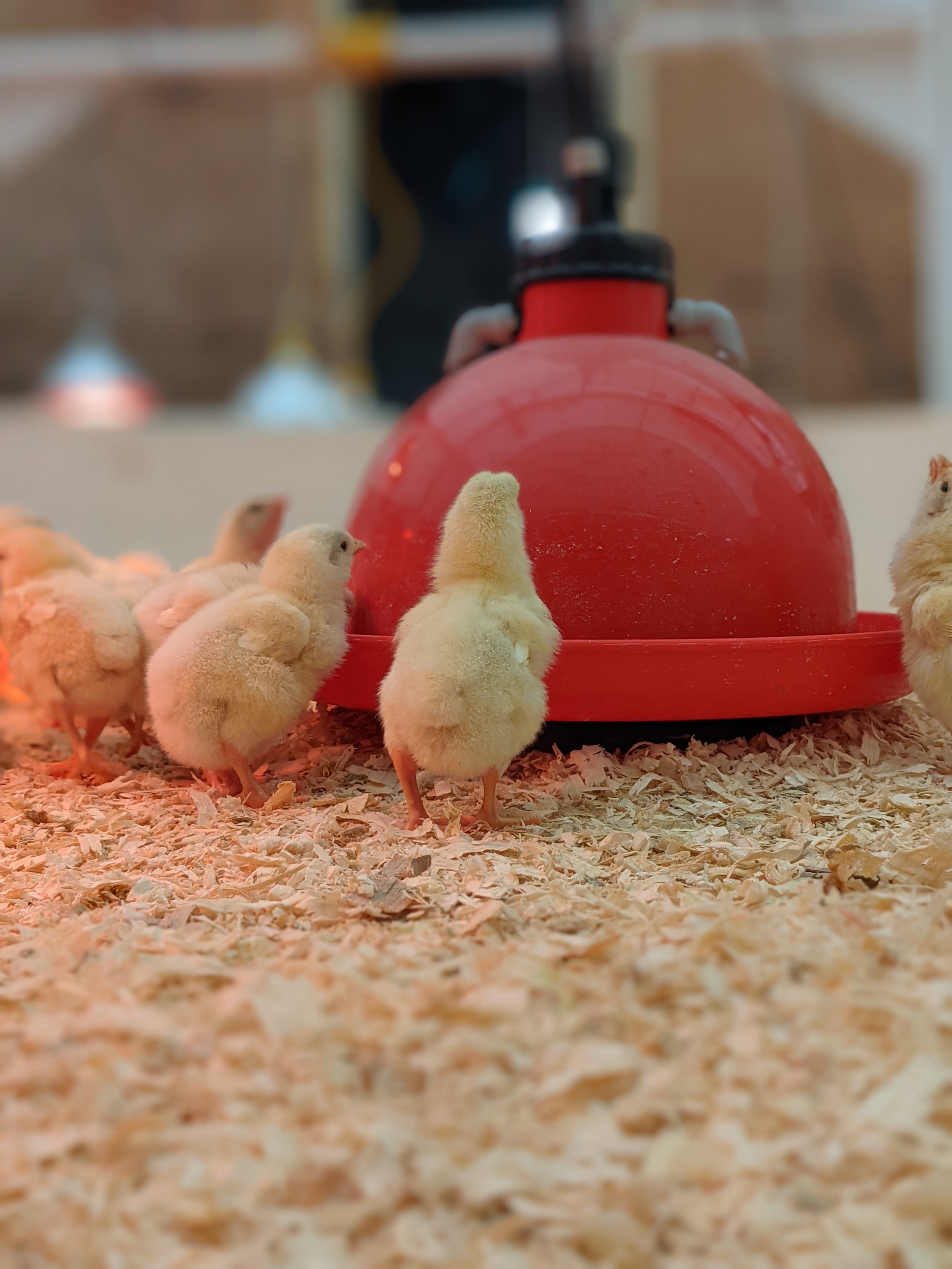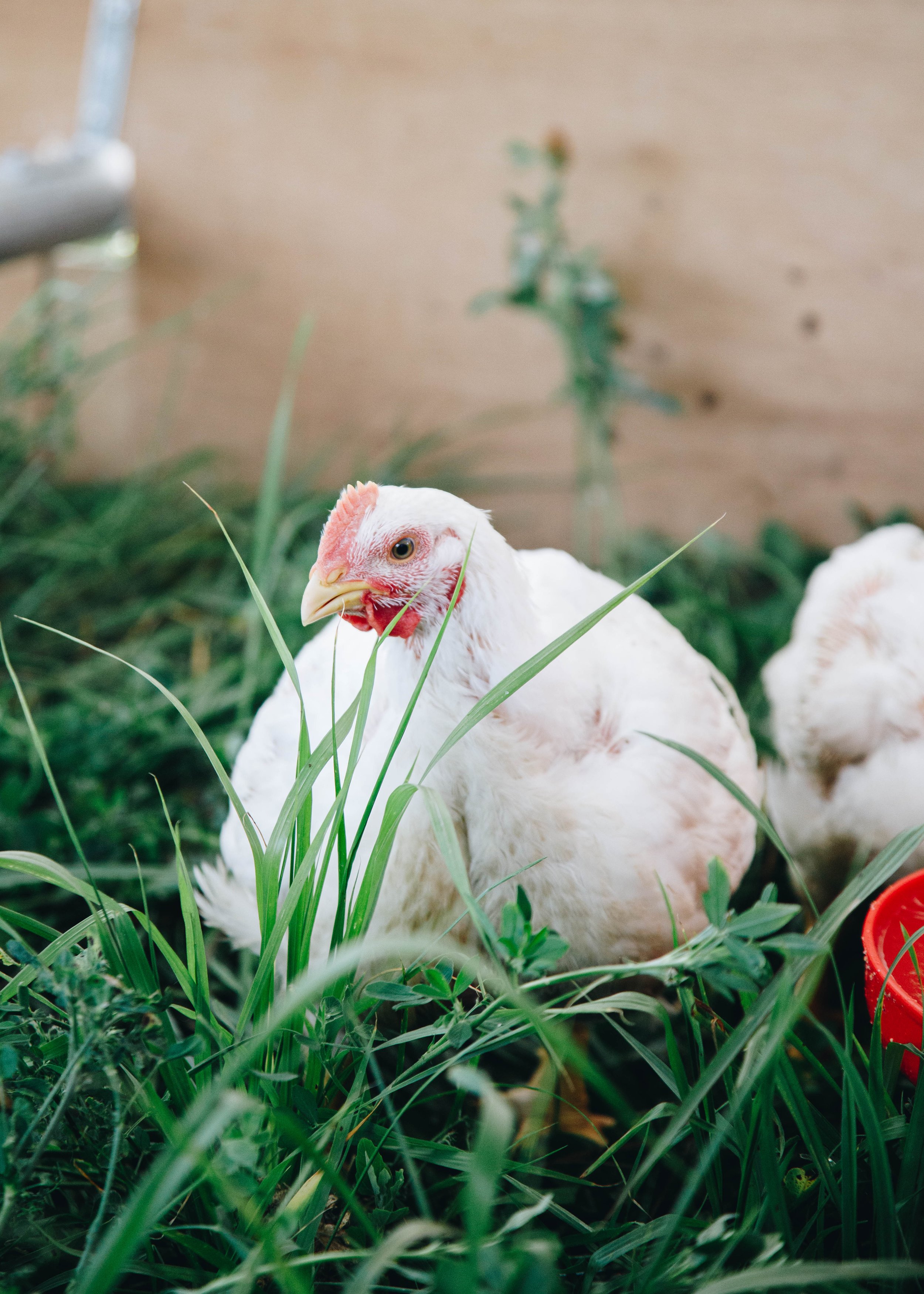How We Raise Our Pastured Chickens
We raise our pastured chickens the best way we can - on pasture, protected from predators, where they can use their natural instincts to peck and scratch. As always, we’re happy to share and answer your questions. Here’s the answers to the most common questions we receive.
We purchase male cornish cross chicks from a local hatchery and they arrive at our farm when they are one day old. Chicks need to stay very warm (around 95 for the first few days especially), so we keep them in an enclosed building with cement floors with heat lamps, wood shavings, automatic waterers and lots of feeders with feed that is easy to digest. It is so fun watching them grow at this age. We can see them grow each day!
Once they are two to three weeks old, they have some of their feathers and are ready to go out to pasture. We pick a day without rain, strong winds or cold temperatures. They almost immediately start pecking at the plants and finding bugs to eat!
Each morning after, we move the hoop house one full thirty six foot space forward to fresh grass. We use the truck and pull the whole hoop house slowly forward. Usually, Valerie walks inside with the chickens, making sure they move forward with the hoop house. The chickens catch on fast and after a few days know the fresh grass is towards the front. Next year, it will be even smoother without the hoop house split into four groups (it was this way for our grant research in 2021). The chickens stay inside the hoop house for protection from predators like foxes, raccoons, skunks, hawks, opossums and so many more. Chicken don’t have a way to protect themselves, so we take extra precautions to keep them safe while giving them fresh pasture!
Once they are moved to fresh pasture, we make sure their automatic waterers are cleaned out and working well. We give them feed and make sure they stay cool or warm, enough depending on the weather. The sides have a roll up tarp that can be closed on cool days and opened on warm days for extra air movement.
We love the chickens. It’s a great seasonal addition to our beef cattle. The chickens often graze the same pasture the cattle have grazed. It sounds strange, but their chicken poop is great too! After moving the chicken hoop house the full length of the pasture, we could see a distinct line where the grass was darker green and growing back faster and denser than the other pasture because of the natural fertilizer from the chicken manure!






